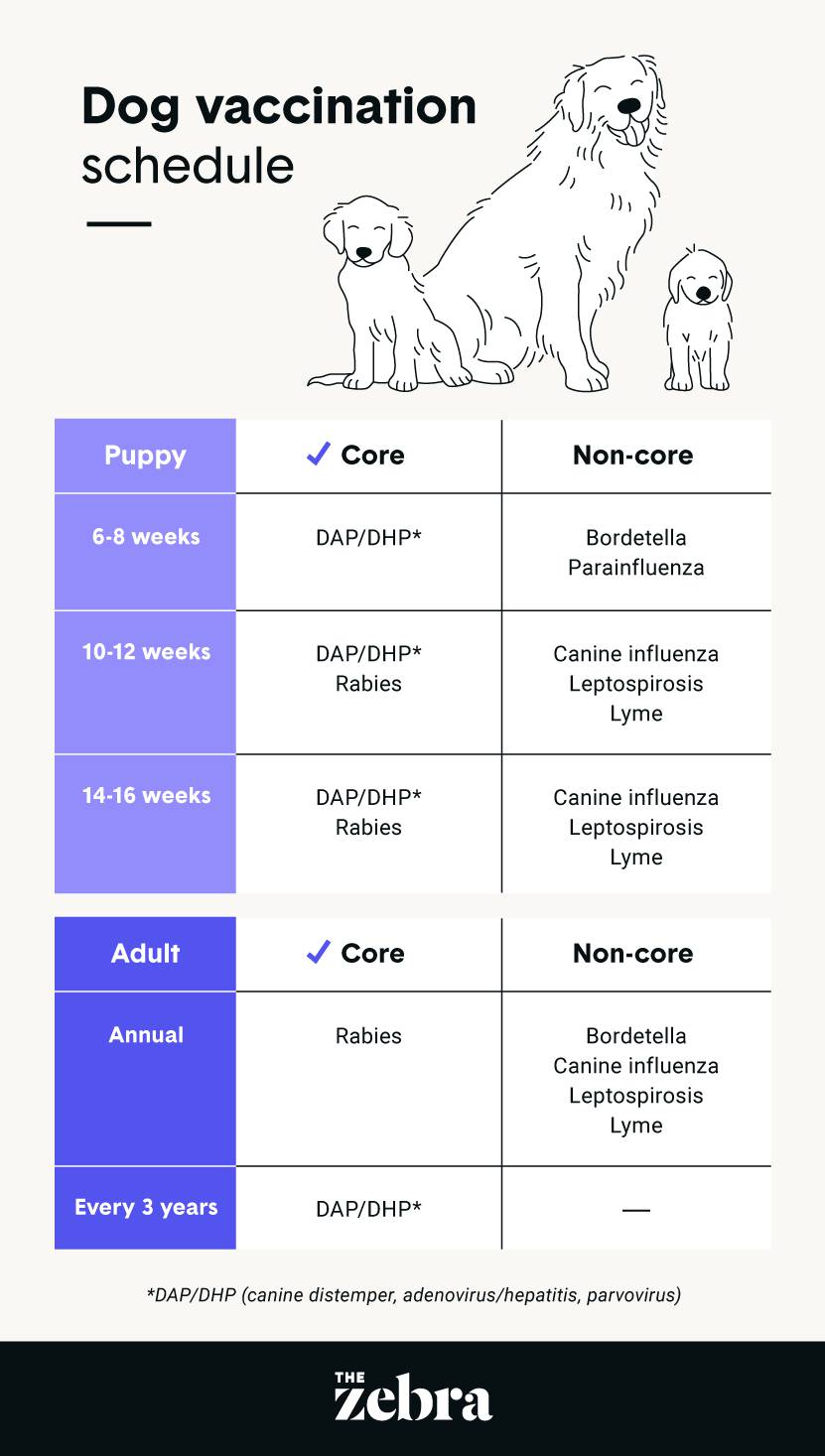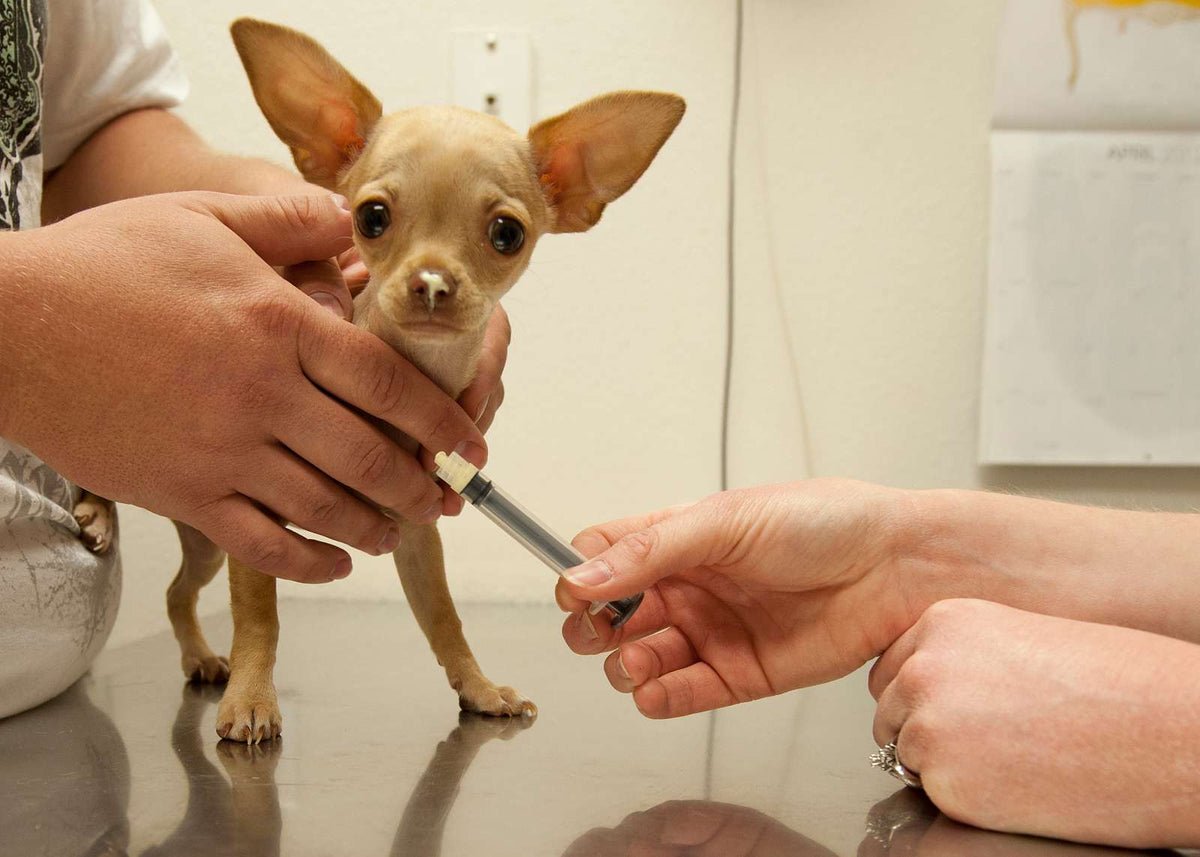As a professional in the veterinary field, I often get asked about the vaccines necessary for chihuahua puppies. Did you know that chihuahuas are extremely susceptible to certain diseases? Due to their small size, their immune systems aren’t as robust as larger breeds. This makes it crucial for chihuahua puppies to receive the right vaccinations to protect them from potential health risks.
When it comes to chihuahua puppies, core vaccines are essential. These include vaccinations for distemper, parvovirus, and rabies. Distemper and parvovirus can be deadly for puppies and are highly contagious, so it’s important to ensure they are protected as early as possible. Additionally, vaccinating against rabies is not only necessary for legal reasons, but it also safeguards the health of your furry friend. Remember, prevention is key when it comes to keeping chihuahua puppies healthy and happy.

What Shots Do Chihuahua Puppies Need? Explained in Detail
Chihuahua puppies are adorable and tiny, but they still need proper medical care to ensure their health and well-being. One essential aspect of puppy care is vaccinations. Vaccinations help protect puppies from potentially deadly diseases and help them develop a strong immune system. In this article, we will discuss the shots that chihuahua puppies need in detail to help you provide the best care for your furry friend.
1. Vaccination Schedule for Chihuahua Puppies
Vaccinating your chihuahua puppy requires following a specific schedule to ensure their protection against diseases. Your veterinarian will guide you through the vaccination process, but it typically involves a series of shots administered at specific ages. The core vaccines typically recommended for chihuahua puppies include:
– Canine Distemper: This viral disease affects the nervous, respiratory, and gastrointestinal systems of dogs. Puppies should receive the initial distemper vaccine at around 6 to 8 weeks of age, followed by boosters every 3 to 4 weeks until they are around 16 to 20 weeks old.
– Canine Parvovirus: Parvovirus is a highly contagious and potentially fatal disease. Puppies should receive their first parvovirus vaccination at 6 to 8 weeks of age, followed by boosters every 3 to 4 weeks until they are around 16 to 20 weeks old.
– Canine Adenovirus: This virus causes respiratory infections and hepatitis in dogs. The initial adenovirus vaccine is usually given at 6 to 8 weeks of age, with boosters administered every 3 to 4 weeks until the puppy is around 16 to 20 weeks old.
2. Additional Vaccines for Chihuahua Puppies
Apart from the core vaccinations, there are optional vaccines that chihuahua puppies can receive depending on their lifestyle and environment. These vaccines may be recommended based on your geographical location or if your puppy will have exposure to certain activities or environments. Some common additional vaccines include:
– Bordetella: Also known as kennel cough, Bordetella is a highly contagious respiratory disease that spreads in places where dogs gather, such as boarding facilities or dog parks. If your chihuahua puppy will have contact with other dogs in these environments, the Bordetella vaccine may be recommended.
– Rabies: Rabies is a fatal virus that affects the central nervous system. Vaccination against rabies is legally required in many areas and is typically given to puppies when they are around 12 to 16 weeks old.
– Leptospirosis: Leptospirosis is a bacterial disease that can be transmitted to dogs and humans. If your chihuahua puppy will have exposure to wildlife, bodies of water, or areas with rodents, the Leptospirosis vaccine may be recommended.
3. Discussing Vaccinations with Your Veterinarian
While having a general understanding of the vaccinations required for chihuahua puppies is important, it’s crucial to consult with your veterinarian for personalized advice. They will consider your puppy’s health, lifestyle, and location to create a vaccination plan that is tailored to their specific needs. Your veterinarian will also provide you with the necessary information regarding vaccine side effects, common signs of adverse reactions, and what to do in case of an emergency.
4. Importance of Regular Vaccinations and Boosters
Vaccinations are not a one-time event but an ongoing process that requires regular boosters. Boosters are necessary to maintain the effectiveness of the initial vaccinations and ensure long-term protection against diseases. Your veterinarian will recommend the appropriate vaccination schedule for boosters, which usually occur annually or every few years, depending on the vaccine.
5. Benefits of Vaccinating Chihuahua Puppies
Vaccinating chihuahua puppies has numerous benefits for both the individual dog and the dog population as a whole. Some key benefits include:
– Protection against life-threatening diseases: Vaccinations significantly reduce the risk of puppies contracting serious and potentially deadly diseases.
– Prevention of disease spread: Vaccinated puppies help create a barrier against disease transmission, protecting vulnerable populations like elderly dogs, pregnant dogs, and puppies who may not have completed their vaccinations yet.
– Peace of mind: By vaccinating your chihuahua puppy, you can have peace of mind knowing that you have taken proactive steps to protect their health and well-being.
6. Tips for a Successful Vaccination Experience
To ensure a successful vaccination experience for your chihuahua puppy, consider the following tips:
– Start early: Begin the vaccination process as soon as recommended by your veterinarian to provide early protection.
– Stay on schedule: Follow the vaccination schedule and make sure not to miss any booster shots. Consistency is essential for long-term immunity.
– Prepare for side effects: While most puppies tolerate vaccinations well, some may experience mild side effects like lethargy or decreased appetite. Monitor your puppy closely after vaccinations and contact your veterinarian if you notice any severe or prolonged side effects.
Boosters: Maintaining Immunity
Boosters play a crucial role in maintaining your chihuahua puppy’s immunity to diseases. Regularly scheduled boosters help reinforce the initial vaccines and provide ongoing protection throughout your puppy’s life. Stay in close communication with your veterinarian to ensure your chihuahua receives the necessary boosters at the recommended intervals.
7. Statistics on Vaccination Rates
Vaccinations have significantly contributed to the reduction and control of infectious diseases among dogs. According to a study conducted by the American Veterinary Medical Association, approximately 72.7% of dog-owning households in the United States reported that their dogs had received vaccinations in the past year. This statistic indicates the widespread recognition of the importance of vaccinations in dog care.
In conclusion, vaccinations are a vital aspect of caring for chihuahua puppies. Following the recommended vaccination schedule, discussing additional vaccines with your veterinarian, and staying up-to-date with boosters will help protect your chihuahua puppy from potentially deadly diseases and ensure their overall health and well-being. Remember, always consult with your veterinarian for personalized advice tailored to your puppy’s needs.
Key Takeaways – What Shots Do Chihuahua Puppies Need?
- Chihuahua puppies need a series of vaccinations to protect them against common diseases.
- The core vaccines for chihuahua puppies include distemper, parvovirus, adenovirus, and rabies.
- Non-core vaccines, such as those for bordetella and leptospirosis, may be recommended based on your chihuahua’s lifestyle and risk factors.
- It is important to follow a vaccination schedule recommended by your veterinarian to ensure proper protection.
- Regular booster shots are necessary to maintain your chihuahua’s immunity to diseases.
Frequently Asked Questions
1. When do chihuahua puppies need their first shots?
Chihuahua puppies typically need their first shots when they are around 6 to 8 weeks old. These shots are important for protecting them against common diseases and building their immune system. The specific vaccines they need will depend on their individual health needs and the recommendations of their veterinarian.
In general, chihuahua puppies should receive vaccines for diseases like distemper, parvovirus, adenovirus, and rabies. It’s important to follow the vaccination schedule provided by your veterinarian to ensure that your chihuahua puppy receives the appropriate shots at the right time.
2. How often do chihuahua puppies need vaccinations?
Chihuahua puppies require a series of vaccinations to ensure they are fully protected against diseases. These vaccinations are typically given in a series of shots, with each shot administered a few weeks apart. The exact schedule can vary, but generally, chihuahua puppies will receive their vaccinations at 6, 9, 12, and 16 weeks of age.
After the initial series of vaccinations, chihuahua puppies will need booster shots to maintain immunity. Booster shots are typically given annually or as recommended by your veterinarian. It’s important to stay up to date with your chihuahua puppy’s vaccinations to keep them healthy and protected.
3. Are there any additional vaccines recommended for chihuahua puppies?
In addition to the core vaccines mentioned earlier, there are some optional vaccines that may be recommended for chihuahua puppies depending on their lifestyle and risk factors. These additional vaccines can provide protection against diseases like Bordetella (kennel cough), Lyme disease, and canine influenza.
It’s important to discuss your chihuahua puppy’s lifestyle and exposure risks with your veterinarian to determine if any additional vaccines are necessary. Your veterinarian will be able to provide recommendations based on the specific needs of your chihuahua puppy.
4. Can chihuahua puppies have adverse reactions to vaccines?
Like any other dogs, chihuahua puppies can have adverse reactions to vaccines, although they are generally rare. Some puppies may experience mild symptoms like soreness at the injection site, lethargy, or a slight fever. These symptoms usually subside within a day or two.
In rare cases, chihuahua puppies may have more severe reactions, such as an allergic reaction or anaphylaxis. If you notice any concerning symptoms like difficulty breathing, facial swelling, or persistent vomiting after vaccination, it’s important to contact your veterinarian immediately.
5. Is it safe to socialize my chihuahua puppy before they finish their vaccinations?
Socialization is crucial for the development of a well-rounded and confident chihuahua puppy. While it’s important to protect your chihuahua puppy from potential disease exposure, you can still safely socialize them before they finish their vaccinations.
It’s best to socialize your chihuahua puppy in controlled environments, such as puppy classes or playdates with fully vaccinated and healthy dogs. Avoid high-risk areas like dog parks or areas with unknown vaccination status. You can also carry your chihuahua puppy in your arms or use a pet carrier when in public spaces to minimize direct contact with other animals. Always consult with your veterinarian for specific guidance on socializing your chihuahua puppy while ensuring their health and safety.

In conclusion, when writing for a 13-year-old reader, it is crucial to approach the task with a professional attitude. By taking into consideration the age of our audience, we can adjust our tone and language accordingly. By using a conversational tone, avoiding jargon, and keeping our sentences concise, we can effectively communicate our key points to young readers. Writing for a younger audience requires us to be mindful of our language and ensure that our message is both clear and understandable.
